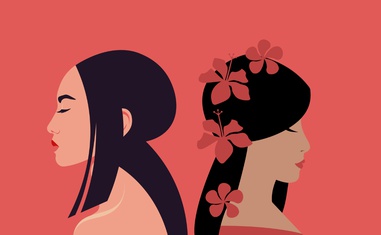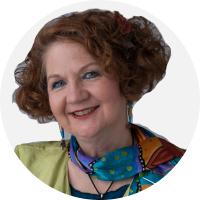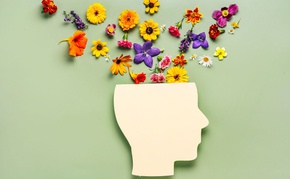The views expressed in our content reflect individual perspectives and do not represent the authoritative views of the Baha'i Faith.
Three years ago, I shared with my Canadian friend Jaellayna an article I wrote on behalf of my town’s multi-cultural commission, encouraging local residents to celebrate Asian American and Pacific Islander Month in May.
In the 1970s, through the efforts of several members of the U.S. Congress, the month of May was designated to recognize the contributions and celebrate the cultures of people of Asian and Pacific heritage. Although Canada has no equivalent observance, the spirit of the month resonated with Jaellayna, too. We both love what the Baha’i teachings have to say about connecting with all people in a spirit of friendliness and fellowship, as this quote from Abdu’l-Baha explains:
If you desire with all your heart, friendship with every race on earth, your thought, spiritual and positive, will spread; it will become the desire of others, growing stronger and stronger, until it reaches the minds of all men.
People of Asian heritage — initially from the Philippines — arrived in California as early as 1587. Since that time, immigrants from other Asian and Pacific Island nations have settled in this part of the world. With each group bringing its own cultural practices, diverse people have immigrated for a variety of reasons. Some have financial means, while others do not; some immigrate for education or business; some are escaping from a hostile situation. There are many other scenarios to account for, and these have varied over the years, too.
RELATED: Yamamoto and Fujita: The First Japanese Baha’is
So, what do we mean when we refer to Asian Americans and Pacific Islanders? According to the U.S. Census Bureau, an Asian is “a person having origins in the Far East, Southeast Asia, or the Indian subcontinent including Indonesia, Cambodia, China, India, Japan, Korea, Malaysia, Pakistan, the Philippine Islands, Thailand, and Vietnam.” The Bureau then defines Native Hawaiian or other Pacific Islander as “a person having origins in any of the original people of Hawaii, Guam, Samoa, or other Pacific Islands.”
Jaellayna, originally from the U.S. and now living in Canada, has traveled to almost 50 countries, including many in Asia and the Pacific Islands. I’ve lived in various US communities, large and small. As we chatted via email about my article, we reflected on how focusing on specific populations sometimes initiates new awareness and connections.
What about you? Perhaps your own heritage is Asian American or Pacific Islander, or maybe you have a diverse group of friends and acquaintances with those roots. If you live in an area where most people have a background similar to your own, you might be curious to learn about the many people making up these broadly defined groups.
We both believe that being acquainted with cultural practices is a good start but that it cannot do enough by itself to change the world. Even while acknowledging this, we agree that the joy we feel from doing so creates a step toward increasing understanding and improving relationships. With that as a goal, we discussed some ways to better know these fascinating, rich cultures.
One of the easiest ways of engaging with Asian cultures is, of course, through food — and not just at franchise Chinese restaurants. In both the US and Canada, we can easily find restaurants and cafes featuring authentic food from around the world. During the pandemic, many people tried new recipes and cooking styles. Now that markets and other businesses have reopened, what about buying new spices and Asian vegetables to try at home?
Yet another option: learning about history and cultures from books and films. Although a complete list of books and films would be long, with each having a slightly different angle in the storyline, you can readily find one or more to suit your own taste and curiosity. We will mention a few here. You might be interested in film classics such as “South Pacific” and “Sayonara,” both based on novels by James Michener as they explore prejudices against Pacific Island and Japanese people. Another older book adapted for film is Pearl S. Buck’s “The Good Earth,” which depicts life in a Chinese village. Two of my favorite Asian authors are Amy Tan and Jhumpa Lahiri, whose books have given me fresh insights about their cultures.
Contemporary works also include the Japanese film “Departures” and the Indian film “Slumdog Millionaire.” Three years ago, “Minari,” a movie about a Korean family moving to Arkansas, was nominated for Academy Awards for Best Film, Director, Original Screenplay, and Original Music Score, with Yuh-jung Youn winning Best Supporting Actress. Four years ago, another South Korean film, “Parasite,” won multiple awards, including the Academy Award for best picture, director, screenplay, and international feature film.
You might want to travel to Asian or Pacific Island nations, whether as a tourist or a volunteer. If travel does not interest you or is impractical, through the internet you might engage in armchair travel. Jaellayna told me about one of her friends who uses Google Earth to zoom into a part of the world he knows very little about, and then searches for websites with photographs, online museums, and virtual tours.
How might we go deeper than simply absorbing and appreciating cultural awareness? Certainly, we can be kind and friendly towards all people wherever we encounter them – and we can make more attempts to have those encounters. These words from Abdu’l-Baha, son of Baha’u’llah, the founder of the Baha’i Faith, addressed this theme:
The diversity in the human family should be the cause of love and harmony, as it is in music where many different notes blend together in the making of a perfect chord. If you meet those of different race and color from yourself, do not mistrust them and withdraw yourself into your shell of conventionality, but rather be glad and show them kindness. Think of them as different colored roses growing in the beautiful garden of humanity, and rejoice to be among them.
Of course, in both the US and Canada, newcomers, as well as long-term citizens from Asian and Pacific Island nations, have often suffered discrimination and racism. Indeed, both of our countries – the United States and Canada – have a sad, even tragic, history of attitudes, practices, and policies. Just to offer one notable example: after World War II, both countries established internment camps to segregate and punish people of Japanese origins. Even earlier, both countries exhibited anti-Chinese sentiment when many came to work in the gold mines and on the railroads. Anti-immigrant sentiment has also been associated with the Vietnam War, Korean War, and Philippine War, and too often continues today.
RELATED: What Does ‘Unity’ Really Mean?
Sadly, since the pandemic began, perhaps in a search for someone to blame, incidents of hatred toward Asian Americans have increased. What might we do to help heal this unfortunate outcome of reactions based on ignorance and prejudice? In a talk he gave in Paris, Abdu’l-Baha said that empathy, friendship, and standing up for the rights of others will contribute to a society based on justice:
Do not be content with showing friendship in words alone, let your heart burn with loving kindness for all who may cross your path. … What profit is there in agreeing that universal friendship is good, and talking of the solidarity of the human race as a grand ideal? Unless these thoughts are translated into the world of action, they are useless … If actions took the place of words, the world’s misery would very soon be changed into comfort.
This vision and the promise within it offer a keen understanding of the importance of our actions and attitudes. Society — whether American, Canadian, or any other — benefits from welcoming all peoples, exploring diverse cultures, and replacing racism with unity.
This article can serve as a reminder for us to show love to others in all of the days to come. As confirmed by the Baha’i teachings, through our own conversation, and then the experience of sharing it this way, we are committed to embracing diversity in the long-term and to cultivating inclusive, loving connections and actions in every month of every year. We hope that this might inspire you to do so as well.
We wish to close with these inspirational words from Abdul-Baha about the intersection of the East and the West and the tremendous positive impact of combining the qualities of both:
The East and the West must unite to give to each other what is lacking. This union will bring about a true civilization, where the spiritual is expressed and carried out in the material. Receiving thus the one from the other the greatest harmony will prevail, all people will be united, a state of great perfection will be attained, there will be a firm cementing, and this world will become a shining mirror for the reflection of the attributes of God.


















Comments
Sign in or create an account
Continue with Facebookor